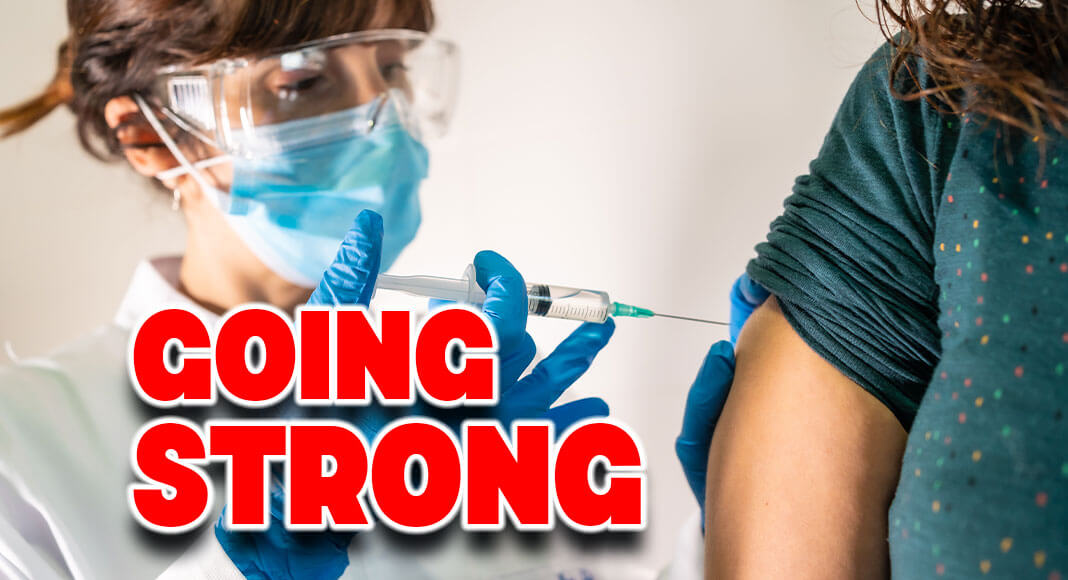
Mega Doctor News
By Johns Hopkins Bloomberg School of Public Health
Newswise — An analysis of research literature published last year before the omicron variant took hold found that while COVID-19 vaccines lose some effectiveness in preventing SARS-CoV-2 infection, the vaccines retain nearly all of their ability to prevent severe disease up to six months after full vaccination. The study, which appears online February 21 in The Lancet, was led by researchers at the Johns Hopkins Bloomberg School of Public Health and the World Health Organization.
For their study, the researchers analyzed vaccination effectiveness data published last year from June 17 to December 2 in both peer-reviewed journals and on preprint servers, which post papers ahead of peer review. The data—detailed in 24 papers—covered dozens of individual vaccine evaluations preceding the emergence of the currently dominant omicron variant.
The researchers found that the level of protection from SARS-CoV-2 infection fell by about 21 percentage points, on average, in the interval from one to six months after full vaccination—whereas the level of protection against severe COVID-19 fell by only about 10 percentage points in the same interval. The authors defined “full vaccination” as one dose of Janssen vaccine or two doses of other vaccines. Booster doses were not evaluated.
“There is an indication here of waning vaccine effectiveness over time, though it is encouraging that protection from severe disease—the most worrisome outcome—seems to hold up well,” says study co-first author Melissa Higdon, MPH, a research associate in the Department of International Health and a member of the International Vaccine Access Center (IVAC) at the Bloomberg School.
How long vaccines protect from infection and severe disease is one of the most urgent questions facing public health professionals and policymakers in the COVID-19 pandemic. To address the question, the researchers identified 24 studies, published in journals or posted on preprint servers June 17 to December 2 last year and covering the four major Western-developed vaccines—Pfizer, Moderna, J&J, and AstraZeneca. Many papers contained multiple vaccine evaluations. The researchers combined the data from the different studies using statistical tools to estimate an average change in vaccine effectiveness over time.
The finding that protection dropped against detected infection by an average of 21.0 percentage points over five months means that a vaccine providing 90 percent protection from infection at 1 month would provide only 69 percent protection at 6 months. The average drop was essentially no different among vaccinated persons older than 50 when analyses were restricted to just their data.
Similarly, protection against symptomatic illness from SARS-CoV-2 infection—which includes both mild and severe illness—dropped on average by 24.9 percentage points among persons of all ages, and 32.0 percentage points among older persons, from one month to six months post-vaccination.
Public health officials often emphasize vaccination for its protection against severe COVID-19. For this more serious outcome, vaccine protection apparently was more durable, with effectiveness dropping on average by just 10 percentage points during the one- to six-month interval. The slight drop was similar for older persons who are at increased risk for severe COVID-19 outcomes.
An analysis of post-vaccination infections with only the delta variant also found waning protection over time, suggesting that declining immunity—rather than changes in protection against the delta variant—was the principal reason for the waning vaccine effectiveness prior to the omicron wave.
The study is broadly consistent with others that have looked at vaccine effectiveness over time, and suggests that the four vaccines on average, during pre-omicron waves, have provided good protection against the severe outcomes that are most relevant to public health concerns.
“Omicron is still prevalent in many parts of the world, so it’s going to be critical for COVID-19-related policymakers to pay attention to vaccine effectiveness studies in the context of omicron as well as any future variants—and to assess effectiveness over extended periods of time after vaccination, including vaccination with booster doses,” Higdon says.










